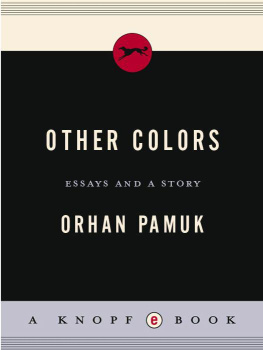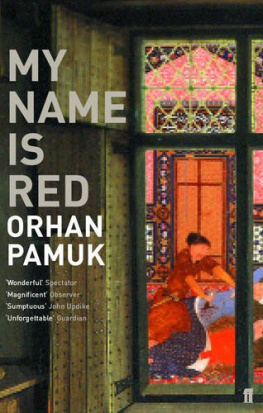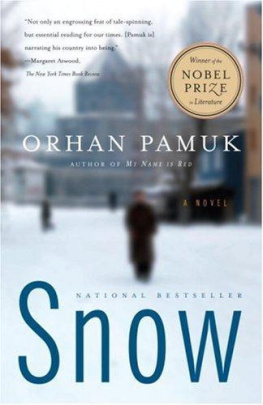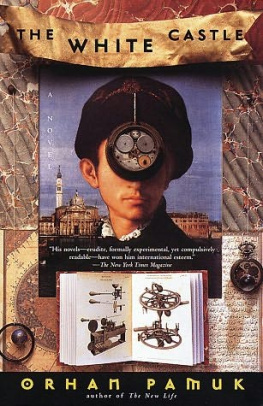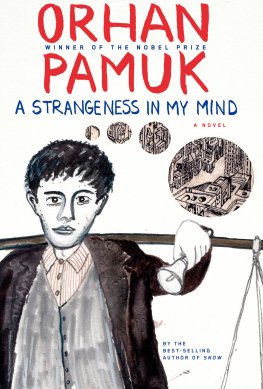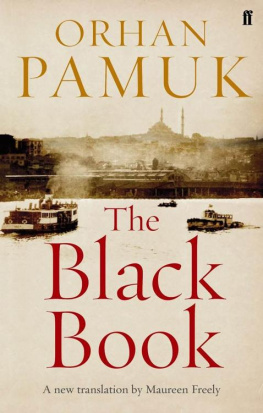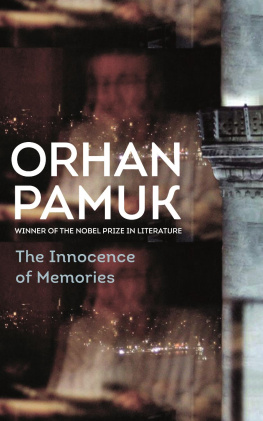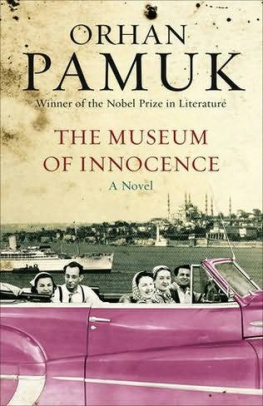CONTENTS
PREFACE
This is a book made of ideas, images, and fragments of life that have still not found their way into one of my novels. I have put them together here in a continuous narrative. Sometimes it surprises me that I have not been able to fit into my fiction all the thoughts Ive deemed worth exploring: lifes odd moments, the little everyday scenes Ive wanted to share with others, and the words that issue from me with power and joy when there is an occasion of enchantment. Some fragments are autobiographical; some I wrote very fast; others were left to one side when my attention was elsewhere. I return to them in much the same way that I return to old photographs, andthough I rarely reread my novelsI enjoy rereading these essays. What I most like are the moments when they rise above the occasion, when they do more than just meet the requirements of the magazines and newspapers that commissioned them, saying more about my interests, my enthusiasms, than I intended at the time. To describe such epiphanies, such curious moments when truth is somehow illuminated, Virginia Woolf once used the term moments of being.
Between 1996 and 1999 I wrote weekly sketches for kz (Ox), a magazine devoted to politics and humor, and I illustrated them as I saw fit. These were short lyrical essays written in one sitting, and I very much enjoyed talking about my daughter and my friends, exploring objects and the world with fresh eyes, and seeing the world in words. Over time, I have come to see the work of literature less as narrating the world than seeing the world with words. From the moment he begins to use words like colors in a painting, a writer can begin to see how wondrous and surprising the world is, and he breaks the bones of language to find his own voice. For this he needs paper, a pen, and the optimism of a child looking at the world for the first time.
I gathered up these pieces to form a totally new book with an autobiographical center. I discarded many fragments and shortened others, taking only excerpts from my hundreds of articles and journals and assigning quite a few essays to strange locations that seemed to fit the arc of that story. For example, the three speeches that have been published as a separate volume in Turkish and many other languages under the title My Fathers Suitcase (containing the Nobel lecture of the same name, as well as In Kars and Frankfurt, the speech I gave to mark the German Peace Prize, and The Implied Author, the speech I gave at the Puter-baugh Conference) appear here in separate sections to reflect the same autobiographical story.
This edition of Other Colors was built from the same skeleton as the book of the same name first published in Istanbul in 1999, but the earlier book took the form of a collection, while this book is shaped as a sequence of autobiographical fragments, moments, and thoughts. To talk about Istanbul, or to discuss my favorite books, authors, and paintings, has for me always been an excuse to talk about life. My New York pieces date from 1986, when I was visiting the city for the first time, and I wrote them to record the first impressions of a foreigner, with Turkish readers in mind. To Look out the Window, the story at the end of the book, is so autobiographical that the heros name might well have been Orhan. But the older brother in the story is, like the older brothers in all my stories, evil and tyrannical, bearing no relation to my real older brother, evket Pamuk, the eminent economic historian. When I was putting together this book, I noticed with consternation that I had a special interest in and predisposition toward natural disasters (the earthquake) and social disasters (politics), and so I left out quite a few of my darker political writings. I have always believed there to be a greedy and almost implacable graphomaniac inside mea creature who can never write enough, who is forever setting life in wordsand that to make him happy I need to keep writing. But when I was putting this book together, I discovered that the graphomaniac would be much happier, and less pained by his writing illness, if he worked with an editor who gave his writings a center, a frame, and a meaning. I would like the sensitive reader to pay as much attention to my creative editing as to the effort I put into the writing itself.
I am hardly alone in being a great admirer of the German writer-philosopher Walter Benjamin. But to anger one friend who is too much in awe of him (shes an academic, of course), I sometimes ask, What is so great about this writer? He managed to finish only a few books, and if hes famous, its not for the work he finished but the work he never managed to complete. My friend replies that Benjamins oeuvre is, like life itself, boundless and therefore fragmentary, and this was why so many literary critics tried so hard to give the pieces meaning, just as they did with life. And every time I smile and say, One day Ill write a book thats made only from fragments too. This is that book, set inside a frame to suggest a center that I have tried to hide: I hope that readers will enjoy imagining that center into being.
L IVING AND W ORRYING
CHAPTER ONE
The Implied Author
I have been writing for thirty years. I have been reciting these words for some time now. Ive been reciting them for so long, in fact, that they have ceased to be true, for now I am entering into my thirty-first year as a writer. I do still like saying that Ive been writing novels for thirty yearsthough this is a bit of an exaggeration. From time to time, I do other sorts of writing: essays, criticism, reflections on Istanbul or politics, and speeches. But my true vocation, the thing that binds me to life, is writing novels. There are plenty of brilliant writers whove been writing much longer than I, whove been writing for half a century without paying the matter much attention. There are also the great writers to whom I return again and again, Tolstoy, Dostoyevsky, and Thomas Mann, whose careers spanned more than fifty years. So why do I make so much of my thirtieth anniversary as a writer? I do so because I wish to talk about writing, and most particularly novel writing, as a habit.
In order to be happy I must have my daily dose of literature. In this I am no different from the patient who must take a spoon of medicine each day. When I learned, as a child, that diabetics needed an injection every day, I felt bad for them as anyone might; I may even have thought of them as half dead. My dependence on literature must make me half dead in the same way. Especially when I was a young writer, I sensed that others saw me as cut off from the real world and so doomed to be half dead. Or perhaps the right term is half a ghost. I have sometimes even entertained the thought that I was fully dead and trying to breathe life back into my corpse with literature. For me, literature is a medicine. Like the medicine that others take by spoon or injection, my daily dose of literaturemy daily fix, if you willmust meet certain standards.
First, the medicine must be good. Its goodness is what tells me how true and potent it is. To read a dense, deep passage in a novel, to enter into that world and believe it to be truenothing makes me happier, nothing more surely binds me to life. I also prefer that the writer be dead, because then there is no little cloud of jealousy to darken my admiration. The older I get, the more convinced I am that the best books are by dead writers. Even if they are not yet dead, to sense their presence is to sense a ghost. This is why, when we see great writers in the street, we treat them like ghosts, not quite believing our eyes as we marvel from a distance. A few brave souls approach the ghosts for autographs. Sometimes I remind myself that these writers will die soon and, once they are dead, the books that are their legacy will occupy an even more cherished place in our hearts. Though of course this is not always the case.

